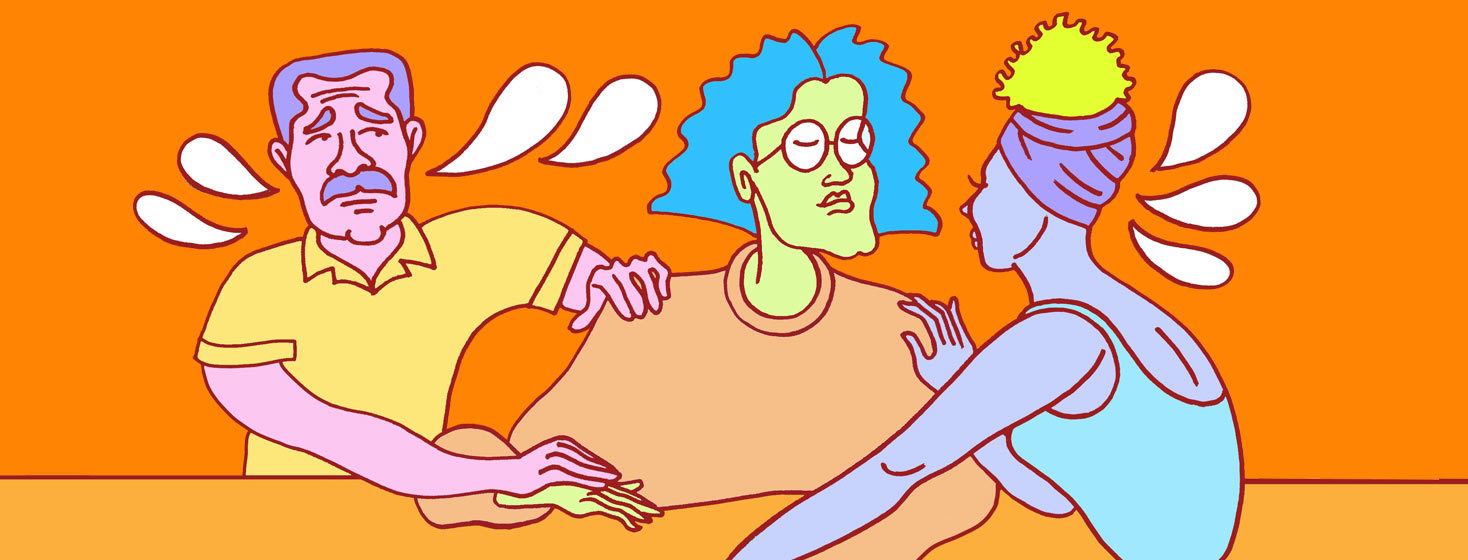Newly Diagnosed With Heart Failure
No matter what age you were diagnosed with heart failure, we all remember receiving the news. We all remember what life was like before the diagnosis.
For me, there wasn’t a care in the world except securing a job in my field of study. It was like being hit by a train coming at full speed when we got the diagnosis. We being my mom and dad and I.
There are so many questions like, “What’s next for me now?” If you were like me, you would ask, “How long do I have to live?”
Fortunately, there is still life after a heart failure diagnosis. I hope this article can help you navigate a new diagnosis of heart failure.
My diagnosis story
I got the diagnosis of advanced heart failure after I suffered a stroke. It took the doctors weeks to figure out what was going on with me. Here I was, a few days after my 30th birthday with heart failure.
Before that, I was diagnosed with dilated cardiomyopathy and my cardiologist had a conversation with us. He let us know that it could lead to heart failure, but we were not expecting it so soon, however, there were signs.
This is where advocating for yourself comes into play because I told my cardiologist something was wrong. I couldn’t breathe while lying down and was so exhausted and winded while walking. Being a track and field athlete it was mind-blowing to me and he still didn’t take me seriously.
It wasn’t until I had a stroke for the 2nd time and was diagnosed with advanced heart failure, and switched cardiologists, did he listen.
Don’t let this be you, learn to advocate for yourself because you are the only person who can.
Ask all your questions!
Next, don’t be afraid to ask questions because this is something completely new, and if you don’t understand, ask your cardiologists. At first, you will be heartbroken that this is your new reality. Then they will start talking to you about your treatment plan.
You may want to ask questions like:
- What is my ejection fraction?
- What stage of heart failure am I in?
- What should I expect in the coming months and years?
- What are some treatment options?
- What are some lifestyle changes I need to make?
These are a short list of questions you should be asking your doctors. Nothing is off limits, so, if you have a question it is important to ask it.
Tests and exams
There are a multitude of tests and exams that the cardiologist will order to see the condition of your heart. Some tests you can expect to see are an echocardiogram, right heart catheterization, MRI, CT scan, EKG, and a chest x-ray, just to name a few.
Blood tests can also be done. For instance, the BNP blood test is what should’ve alerted my cardiologist of my heart’s condition. BNP stands for brain natriuretic peptide and it’s a blood test that measures a certain level of proteins (BNP) in your bloodstream.
Treatment
Your doctors will likely be prescribing you heart failure medications. Most prescribe a blood thinner, diuretics that help remove extra sodium and fluid, beta-blockers that slow the heart rate, ace inhibitors that help to relax your blood vessels and blood pressure meds- to name a few medications I was on.
Every person’s journey is different and just because I was on these medications doesn’t mean that you will be. Every cardiologist has treatment plans that will be according to the individual person's heart condition.
Try your best to manage stress
Managing your stress levels is also very important when you are newly diagnosed with heart failure. When you are stressed your blood pressure can be up and that is not good for the heart.
One thing that I like to do is practice mindfulness and walking in nature. There is something about walking that eases my mind and my body, but if you are suffering from the fatigue that comes with heart failure it can be hard to do. I can remember being so exhausted walking from my bedroom to the bathroom down just down the hall.
Talk to your cardiologist about exercise and about what you should (or should not) be doing.
Be aware of your salt intake
In addition to managing your stress levels lowering your sodium intake is beneficial. Make sure to talk to your doctor about how much sodium you should be having, and any strategies they suggest for managing your sodium intake.
Being newly diagnosed with heart failure
Nobody wants to get this diagnosis, but sometimes it’s just the cards that we are dealt. Dealing with it is challenging especially if you don’t have a strong support system. You may also need to seek out a therapist to cope with the many emotional hurdles you’ll have to go through.
One thing I will say is maintaining a positive attitude makes a difference. No matter what the doctors tell you.

Join the conversation